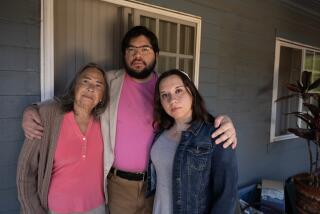New Culture Festival Suggested to Take Place of Street Scene
- Share via
A new cultural festival to be staged later this year in place of the Street Scene, which was canceled last year due to financial problems and scattered violence, has been recommended by two key city officials.
Under the proposal, a yet-to-be-chosen private firm would stage the event, without using city employees, and would assume all costs of putting on the event.
The 1987 Street Scene was canceled in the wake of financial problems and scandal surrounding former General Services Department chief Sylvia Cunliffe, who headed the effort. Cunliffe agreed to retire from her city post last December after being criticized for her management practices, among other things. Her handling of the Street Scene was one major source of criticism.
The festival, first held in 1978, has attracted hundreds of thousands of spectators each year.
An estimated 750,000 attended the 1986 Street Scene, but the event was marred by violence. One person was fatally shot, at least 40 others were injured and 35 people were arrested.
Should Pay for Itself
Despite last year’s cancellation, city officials have voiced hope for a revival because of the Street Scene’s success in highlighting the city’s ethnic and cultural diversity. But due to the problems associated with the event, the City Council said any replacement festival should pay for itself in a way similar to the Los Angeles Marathon.
The latest proposal, by Chief Legislative Analyst William McCarley and City Administrative Officer Keith Comrie, calls for some significant modifications in the festival.
The city of Los Angeles, for example, would play no direct role in the festival’s presentation. Under Cunliffe, the General Services Department provided employees to help run the event, costing the city hundreds of thousands of dollars.
Jerry Greenwalt, an analyst in the city administrative office, said several firms, both local and out-of-state, already have expressed some interest in running such a festival. He added that a nationwide search will be conducted if the City Council and the mayor agree to the plan.
Some Ideas Rejected
Greenwalt would not identify any of the inquiring firms, but said one of them has run the annual “Taste of Chicago” festival in that city. He added that some of the organizers of the earlier Street Scene also had expressed interest.
The Comrie and McCarley plan incorporates directives from the City Council as well as a 20-member citizens panel assembled to examine the problems of the Street Scene. The two officials, however, recommended against certain suggestions made by the committee that they felt were too restrictive.
For example, they rejected proposals to limit the new festival to a single weekend, limit the dates to between Sept. 1 and Oct. 30, hold the festival only in the Civic Center and require that the Street Scene name be retained.
In a suggested invitation to bid on staging the event, the two officials said that among other things firms should detail how they would handle the sale and consumption of alcoholic beverages. Police attributed many of the 1986 Street Scene’s problems to drinking.
Street Scene organizers had been reluctant to ban alcoholic beverage sales because beer and wine cooler companies contributed a major share of the event’s $700,000 annual budget.
More to Read
The biggest entertainment stories
Get our big stories about Hollywood, film, television, music, arts, culture and more right in your inbox as soon as they publish.
You may occasionally receive promotional content from the Los Angeles Times.










